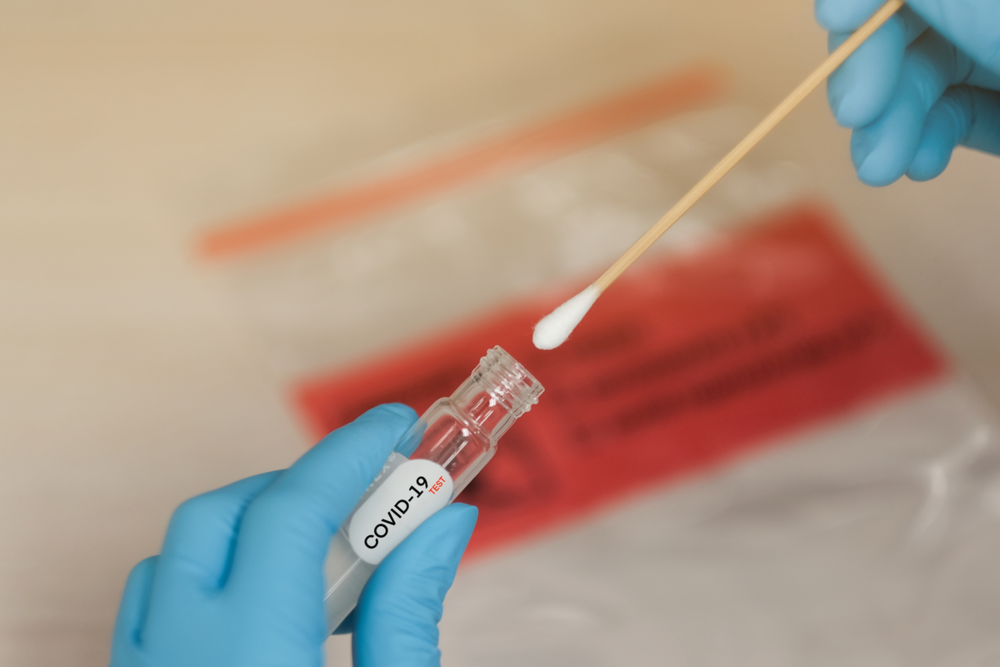There is an abundance of information available about the different COVID-19 tests that are on the market. The pandemic has led to rapid developments that while helpful, can produce confusion. The North Texas Medical Society Coalition (NTMSC) wants to highlight the critical differences between COVID-19 tests and explain how they are an important part of protecting North Texas communities.
“To say that there is complexity and confusion around testing strategies for COVID-19, is an understatement. It was a faltered start followed by a ‘work in progress,’” says Dallas physician, Mark Casanova, MD.
There are two main types of COVID-19 tests: viral tests (PCR nasal swab tests) and antibody tests.
The difference between viral tests and antibody tests:
- Viral tests check for the active virus in an individual’s mucus and detect if someone is infected and contagious.
- Antibody testing is a blood test to determine if someone was previously infected with COVID-19, but should not be used for people who have current COVID-19 symptoms. It is important to note that it is currently unknown if COVID-19 virus antibodies can
- protect an individual from reinfection or, if they do, how long this protection might last.
- It is important to remain vigilant with protective measures.
Who needs to be tested:
- Viral testing is used for those who are symptomatic or who have been exposed to COVID-19. Frontline healthcare personal and other essential workers may consider screening even if they are asymptomatic.
- Antibody testing can help determine if someone is a candidate to donate plasma to help patients with active COVID-19. In the future, it may be used to help determine who may have had asymptomatic cases, but the testing is not yet widely available or reliable enough for this purpose.
Some limitations of testing:
Viral testing requires a minimal level of viral particles for the test to be positive, so an early infection or incorrectly administered swab can lead to false negatives. If individuals have COVID-19 symptoms but their tests are negative, it is important that they self isolate for 14 days.
Antibody tests can produce a false positive in patients who have had other types of coronavirus infections, many of which mimic a common cold, and therefore should not be used as a reason to ignore protective measures.
Testing is an effective part of combatting COVID-19. These tests can provide critical information on necessary medical care for individuals and provide a better understanding of how and where the virus spreads; however, one of the most important things to remember is that other safety measures are necessary to protect the population despite test results.
“Even though testing is a useful tool for combatting COVID-19, the most important message is to protect yourself from exposure by distancing six feet apart, frequent hand washing, and wearing face masks,” says Fort Worth physician, Gary Floyd, MD.
|
Cases by County |
June 1, 2020 |
June 10, 2020 |
|
Collin |
1,312 |
1,528 |
|
Dallas |
10,234 |
12,347 |
|
Denton |
1,373 |
1,524 |
|
Fannin |
41 |
49 |
|
Grayson |
388 |
384 |
|
Tarrant |
5,513 |
6,369 |
|
Total Cases in North Texas To Date |
22,201 |
Total Texas Confirmed COVID-19 cases: 77,253 Recovered: 51,140 Deaths: 1,853 (Cases per million people)
About North Texas Medical Society Coalition:
The NTMSC represents more than 11,500 physicians in the communities of Collin-Fannin, Dallas, Denton, Grayson, and Tarrant County. Founded in 2020, the NTMSC works with community healthcare partners, including public health departments, hospitals, and business leaders, to advise on medical recommendations to serve the health care needs of the residents of North Texas.
www.northtexasmsc.org https://www.facebook.com/NorthtexasMSC/

